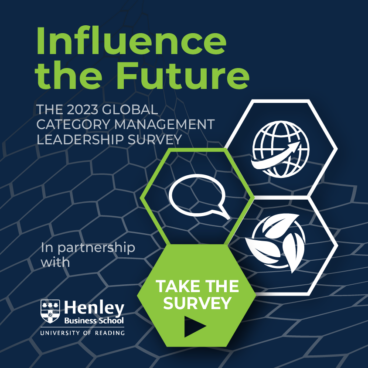
Podcast
The Challenges In Making Category Management Stick | Jon Hughes
In episode 4 of our 5-part podcast series on category management in procurement, Jon Hughes and Mark Webb talk about how some organisations have struggled to make category management stick
By Mark Webb |

Jon Hughes
Profile
35 years international business experience specialising in procurement change management.
Previous employment:
General Motors, British Steel, NWRMC, Co-Founder & Chairman of ADR Purchasing Consultants, Innovation Director for QP Group.
Education:
BA (Hons) and MA in Organisational Psychology, Cambridge University.
CIPS Fellow and holder of their Swinbank Award for Procurement Innovation.
Former Visiting Fellow at Birmingham University and the Vlerick Leuven Business School.
Role in FP: Chairman
Mark Webb, Managing Director, talks to Jon Hughes
In episode 4 of our 5-part podcast series on category management in procurement, Jon Hughes and Mark Webb talk about how some organisations have struggled to make category management stick
Transcript
00:00:00:06 – 00:00:28:03
Jon Hughes
In the early days, supplier management was completely non-existent, to be quite honest. I used to say it was like the Himalayan yeti, much talked about but never seen.
You’d see a bit of contract management, fairly rudimentary. So, wave after wave of change, was needed. Which I think is why many of the best people I’ve met in procurement, they know that their career over, say, 20 years has been through those changes.
They’ve been through those waves, and they can look back and they can see quite clearly the various staging points, moving from one phase to the next.
00:00:28:03 – 00:00:36:18
Mark Webb
Just thinking about the implementations you saw of this. I mean, obviously we’ve encountered clients that have attempted to do it four or five times and to make it stick.
Why do you think that might be? It’s reflecting back on, an organization, you know, says that doing it, have tried to implement it, but then, maybe a new CPO comes along and it’s wave after wave of attempting to take something which is perhaps more strategic sourcing or sourcing orientated into something which is more, which is genuinely more strategic, looking at the categories of expenditure where it’s appropriate. Why do you think that some have struggled to make it stick?
00:01:13:17 – 00:01:34:07
Jon Hughes
Very complex question. I mean, at one level you have to say, although it’s a hard thing to say, that quite a lot of CPOs were not up to it. There’s a shortage of talent as there is in so many disciplines. Certainly going back to eighties, nineties and the early twenties, the available pool of people who genuinely understood this, who got it, was pretty low. They got bits of it, but they definitely didn’t get all of it. So that’s point number one.
I think, again, in the early days, quite a few of the people were much stronger in procurement skills than they were in business skills and engagement and communication skills. So they were not particularly good internal ambassadors, they were not particularly good public relations experts on how to present the change journey.
So I think, you know, in the procurement community itself, there was definitely a competence issue: competence and capability. And I think that’s changed profoundly over the last 20 years. I think it’s improved a lot. There’s a lot more people who’ve come up as category managers who then become category directors, who then become became procurement directors and become CPOs.
It took a long time to build the talent pool up.
You know, I think there’s a lot of things going on now worldwide. So the things you’re doing in the whole area of virtual learning, I mean, it’s an ongoing piece. But again, you go back to the early days, you know, you ran negotiating skills course, you ran a PPCA course and that was that was it. Competence had a tick in the box. We were many miles off.
I think a second piece is clearly the whole engagement piece with stakeholders. You have got to work on a cross-functional basis. You’ve got to genuinely cross the divide because of the functions. It can’t be a battleground and unfortunately you had poor people on both sides. They just couldn’t embrace it.
You would get a lot of resistance, you know, procurement people working in a different way with manufacturing, different way with R&D, different way with marketing and so on. So I think the cross-functional piece had a lot of casualties there. Often procurement were blamed for the wrong reasons.
I think the third one then would certainly be within the general management, executive management community. You know, you’ve got to have a cadre of people who are genuinely supportive of it, but if you can’t get that, then there’s a risk that you get into what I call the sort of initiative syndrome, you know we’ll have a procurement initiative, it’ll last two years and that’s it.
Then we’ll move on to another initiative. Yes, but it’s not really embedded. It’s seen as an initiative, and I have to say quite a few CPOs, their careers were built around those initiatives. You know, they would launch an initiative for three years, then move to another organization, do another one, move to another one. So it would go on. That is not change management is it? That’s not really embedding all the things that you need.
So that getting back into the competence piece. I think if we look at the functional competencies, they’re relatively straightforward, but you’ve got those incredibly important change management competencies. You’ve got to build the change management skills of your function if you’re really going to take it forward. I mean, that’s that is basically a permanent challenge, isn’t it?
00:04:09:09 – 00:04:36:14
Mark Webb
Yeah, I think your point about securing the objectives of the business stakeholders at a senior level, when you’re talking earlier on about the KPIs as well, I think that’s, that’s the missing trigger to accelerate things that we’ve seen is, it is a functional initiative and it is an initiative. And yes, it will drive certain value, but it won’t stick around for long because the business stakeholders aren’t closely enough integrated into the thinking in this most senior level.
And I think that’s the thing that we’ve noticed over the years, is the more that we can make that connection, the more likely it is that It becomes, as you’ve said before, business initiative, not a procurement functional initiative.
00:04:47:20 – 00:05:12:07
Jon Hughes
Oh, I completely, completely agree, Mark. But I mean, it’s my university background in social psychology. So I was very interested in assessment centres and development centres and experiential learning, very early on, you know, back in the seventies.
It was always interesting to get a group of procurement people together and run experiential workshops, not lecturing, get them in and say, I was going to start workshops, you know, I’d walk in with some envelopes, put people into groups of four. I’d give them an envelope, and I’d say in an hour’s time, the chief executive of this organization is going to walk through that door and you’re going to make a presentation as to why they should take procurement seriously.
And people would panic. And I’d look at my watch and say, 59 minutes left, you better get going. And I would have a role play, someone who’d role play the chief executive.
I’m not kidding. In those early days, people would fall apart. I mean, they just couldn’t do it. And I said, okay, well, let’s go back to basic concepts. I used to explain the failings of “tell and sell”. you’d get procurement people turn up in a meeting and they would tell senior management why procurement was so important for them. They would tell them why they were going to deliver so many things that were of such value to those people.
And I’d say, well, that’s great if you got it absolutely right. But what if you’re telling them something they’re not interested in?
Further listening
Podcast episode one: Re-Thinking Procurement in 2023
Podcast episode two: Re-Organising Procurement using category management
Podcast episode three: Embedding Category Management and the Future

About Mark Webb
Managing Director
30+ years procurement experience in line management
and consulting roles.
Previous employment: Price Waterhouse, Mobil Oil and QP Group
Education: BSc in Management Science and MSc in Business by Research, Aston University
CIPS: Member



